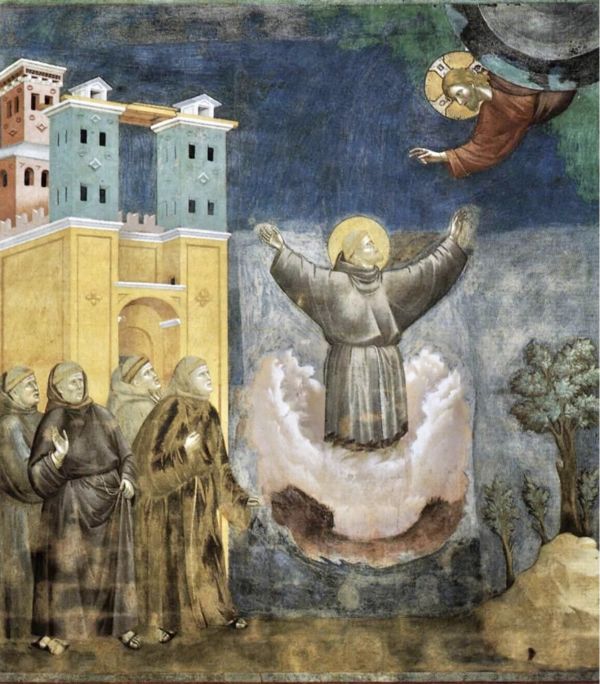Jesus warns against the ruthless justice of the Pharisees, urging respect for every brother and sister and reconciliation, which is the flavour of life as children of God.
Francis was a great spiritual teacher, almost without realising it.
He was convinced, by Grace, that justice always goes hand in hand with mercy.
A justice far removed from legalistic rigidity, eager to express itself in the fulfilment of God's will, always with respect for one's brother.
During the period when he was very ill, Francis learned that the bishop of Assisi had excommunicated the podestà of the city and that the latter had organised various reprisals against him.
Sick as he was, he was moved with pity for them, concerned that no one was interested in restoring harmony and peace between the two.
So he spoke to his brothers.
We find in the Sources: "It is a great shame for us, servants of God, that the bishop and the podestà hate each other so much, and no one takes the trouble to restore peace between them".
He then composed a verse to add to the Lauds (now known as the Canticle of the Creatures).
«... BE PRAISED, MY LORD/
FOR THOSE WHO FORGIVE FOR YOUR LOVE/
AND THEY SUPPORT IN THEMSELVES INFIRMITIES AND TRIBULATIONS/
BLESSED ARE THOSE WHO BURY THEM IN PEACE,
FOR BY YOU, MOST HIGH, THEY WILL BE CROWNED».
This verse was sung by Francis to his friars on the square in front of the bishop's palace, in the presence of the two parties involved and other people.
Thus Francis holy favoured their reconciliation, and the bishop took the podestà in his arms, saying: "By virtue of my office, I should be humble. Unfortunately, I have a temperament prone to anger. I beg you to forgive me."
And so the two embraced and kissed each other cordially.
The Lord, through Francis, had touched the hearts of the two adversaries who, no longer remembering their mutual insults, returned to sincere harmony. (cf. FF 1593)
Justice and mercy are to be sought and asked of God first and foremost in prayer and silence, for a new heart is a gift from the Lord, a continuous exodus.
In the Rule of the Hermits, written by Francis, we read:
"And these [the friars] should have a cloister, in which each one has his own little cell, in which he can pray and sleep [...] and they should rise for matins, and first of all seek the kingdom of God and his justice" (FF 137).
In the same Praises of God Most High, Francis emphasises that God is justice:
"[...] You are justice,
You are temperance,
You are all our wealth in enough" (FF 261).
The Poor Man, knowing that the Lord-Justice called for a greater justice than that of manner, committed himself wholeheartedly to the Kingdom of Heaven and sought to teach his brothers to do the same.
He never forgot that mercy always prevails in God's judgement.
«For I tell you, unless your righteousness surpasses that of the Pharisees and scribes, you will not enter into the kingdom of heaven» (Mt 5:20)
Thursday, 10th wk. in Ordinary Time (Mt 5:20-26)












